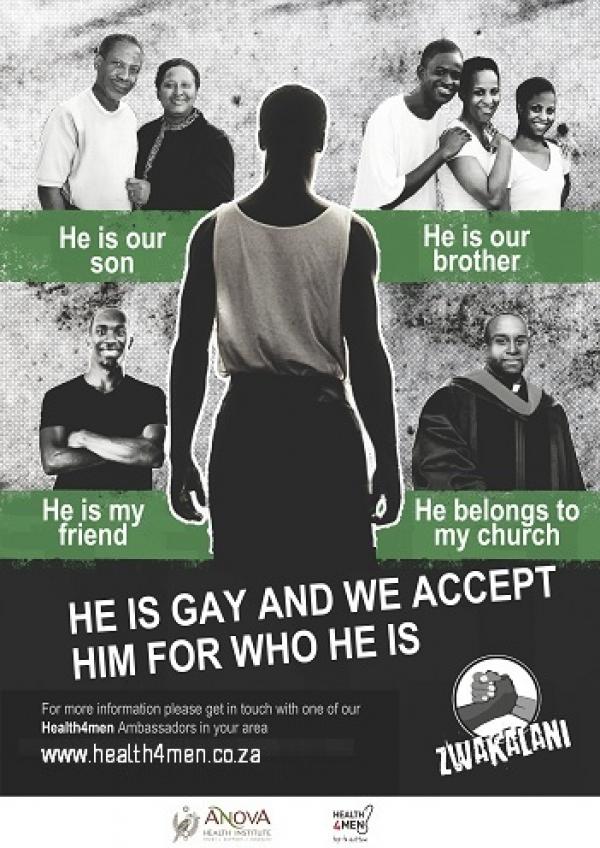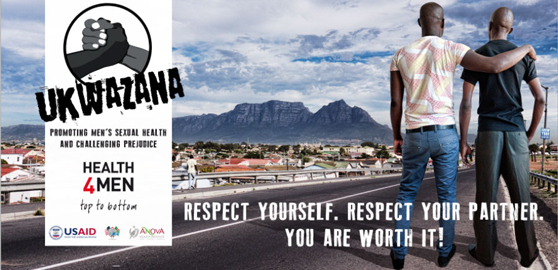South Africa leads in HIV prevention among gay groups

As homophobic discrimination continues to sweep across the African continent, we should be acutely mindful of the diverse ways it harms societies. While we are most aware of the direct effect homophobic physical violence has on sexual minority groups, it is also crucial that we be cognisant of the many insidious ways stigma and discrimination impact not only on sexual minorities but society at large.
In societies that discriminate, sexual minorities are less likely to have access to the information and methods necessary to protect themselves from HIV. The Nobel Laureate and co-discoverer of the HI virus, Francoise Barre-Sinoussi, pointed out at her inaugural address to the 2014 International AIDS Society conference in Melbourne, Australia, homophobia is the perfect breeding ground for AIDS.
Not offering health services and programmes to one stigmatised group in society can negatively impact on all members of society. A failure to offer comprehensive HIV prevention and treatment services to sexual minorities can lead to an increase in national HIV prevalence.
All sexual minorities are entitled to the same access to HIV prevention, treatment and care as the general population. Sustained lowering of HIV prevalence requires persistent engagement with the hearts and minds of societies across the continent.
A key method to do this can be found right here in South Africa. Since 2010, Health4Men, a project of the Anova Health Institute and funded by PEPFAR/USAID and The Global Fund to Fight HIV, TB and Malaria, has developed a holistic approach towards the sexual health needs of sexual minorities, and in particular for men who have sex with men (MSM).
For four years now, Health4Men has developed groundbreaking ways of challenging misconceptions about, and forms of discrimination against, sexual minority groups.

Image courtesy of Health4Men.
This was initiated to make it easier for sexual minority groups to protect their own health and also to be able to access competent clinical care when needed. To put it simply, homophobia has the potential not only to limit competent medical care, but also to increase the likelihood of needing that medical care to begin with. Challenging homophobia within the community and among medical professionals is key to challenging HIV/AIDS.
The work in South Africa, which has recently been highlighted and publicly acknowledged by the World Health Organisation, has led to the project offering its expertise across Africa. In particular, its clinical training and mentoring programme, which so far has trained over 3,000 clinical workers in South Africa, is now being offered to healthcare workers in Kenya, Uganda and Tanzania, supported by the International HIV/Aids Alliance. This comes after a successful pilot in Zimbabwe.
Such work is not easy. Training of clinical staff is not a simple quick fix to often longstanding misconceptions and lack of understanding about sexual diversity. It requires more than a change in attitude. To make a sustained and institutionalised change in healthcare provision requires long term mentoring of clinical staff and drawing on the medical knowledge base created. Health4Men’s two centres of excellence in MSM care, located in Cape Town and Johannesburg, are a good example.
This work is crucial if we are to make a permanent shift in HIV prevalence figures across Africa. As a result of work in South Africa, there is a tried and tested road map to continue this work across the continent.
Dr Andrew Tucker is with the Anova Health Institute of Johannesburg.
Support independent journalism
Donate using Payfast

Don't miss out on the latest news
We respect your privacy, and promise we won't spam you.

This article is licensed under a Creative Commons Attribution-NoDerivatives 4.0 International License.
